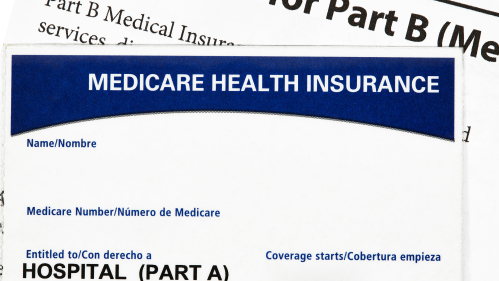Majority of New Jerseyans Support Expanding Medicare to All U.S. Residents

Nine in 10 support idea of state-level health care program for all residents if it could be accomplished sooner than at federal level
New Jerseyans largely support expanding Medicare to provide basic health care coverage to every U.S. resident, regardless of age or employment status, according to a Rutgers-Eagleton Poll.
The latest poll finds:
- Seventy-one percent of New Jersey residents support to some degree (51 percent “strongly,” 20 “somewhat”) expanding Medicare to provide coverage to every U.S. resident, regardless of age or employment status.
- Ninety-three percent of residents who support program expansion would support New Jersey moving ahead with its own program to provide basic health care coverage to every state resident (68 percent “strongly,” 25 “somewhat”) if it could be accomplished sooner instead of waiting for the federal government to expand the program.
- Support for expansion is consistent across race and ethnicity, gender, income level, education, and age.
Removing “Medicare” from the question makes no significant overall difference: When phrased as a “national program” with the description of Medicare but no mention of its name, seven in 10 still “strongly support” (54 percent) or “somewhat support” (17 percent) expansion to all U.S. residents. Eight percent “somewhat oppose” expansion and 16 percent “strongly oppose.”
Among those who support expansion, 68 percent would “strongly support” New Jersey moving ahead with its own program to provide basic health care coverage to every state resident if it could be accomplished sooner than federal expansion of the program. While 25 percent would “somewhat support” this hypothetical state health care program, two percent would “somewhat oppose” and three percent would “strongly oppose.”
“Medicare expansion has taken center stage in political and social discourse in recent years, and New Jerseyans appear amenable to a major shift in health care coverage as we know it,” said Jessica Roman, a research associate at Eagleton Center for Public Interest Polling (ECPIP). “A solid majority of residents support basic health care coverage for all whether it’s called Medicare or not.”
Among the roughly one-quarter of New Jerseyans who oppose Medicare expansion, the top reasons residents cite for their opposition include cost (38 percent), the belief the program should not be universal or should have restrictions (19 percent), distrust in the government to handle all health care or the belief the private sector does so better (7 percent), opposition to socialism (5 percent), and concerns about a decrease in quality (5 percent).
Views on Medicare expansion are starkly divided along party lines. Most Democrats support Medicare expansion whether the program is mentioned by name (91 percent) or not (90 percent). More Republicans, on the other hand, oppose rather than support expansion whether Medicare is mentioned by name (55 percent) or not (51 percent). Independents fall somewhere in the middle – most support Medicare expansion (64 percent when named, 69 percent when not named), though not to the extent Democrats do.
“These partisan divides are not at all surprising, given how divided we see Democrats and Republicans typically are on matters regarding health care and coverage,” said Ashley Koning, an assistant research professor and director of the Eagleton Center for Public Interest Polling (ECPIP) at Rutgers University–New Brunswick. “Though we do see strong opposition among Republicans decline by nine points when the politically charged label of ‘Medicare’ is taken out of the question wording.”
Non-white residents are more likely to support Medicare expansion (77 percent when Medicare is named) than non-Hispanic white residents (66 percent when Medicare is named). This trend holds consistent when Medicare is not mentioned by name (79 percent versus 64 percent, respectively).
Although men and women support Medicare expansion at the same rate when the program is mentioned by name, when it is referred to as “a national program that guarantees basic health care coverage for all senior citizens and some people with disabilities,” women are more supportive of expansion (74 percent) than men (65 percent).
A similar pattern emerges by income level – residents earning less than $100,000 in annual household income and those earning $100,000 or more support Medicare expansion at about the same rate when it is mentioned by name. However, when referred to as a national program with a description of Medicare’s function, the less affluent group supports expansion at a higher rate (78 percent) than the more affluent group (63 percent).
Results by age differ based on question phrasing. When Medicare is mentioned by name, young adults ages 18 to 34 support expansion at a higher rate (85 percent) than their older counterparts. However, when Medicare isn’t named, support among those ages 18 to 34 (73 percent), 35-49 (75 percent), and 65 and older (76 percent) is about equal. Instead, those aged 50 to 64, notably those approaching the current Medicare-eligible age, are less likely to support expansion (61 percent) than their counterparts. Support somewhat declines among younger residents when Medicare is not mentioned by name.
"The above poll confirms prior data indicating that voters are supportive of an alternative to our current health care system,” said Lloyd Alterman of the New Jersey Healthcare Coalition (NJUHC).
Results are from a statewide poll of 1,006 adults contacted by live interviewers on landlines and cell phones from Aug. 30 to Sept. 8. The full sample has a margin of error of +/- 3.8 percentage points.


